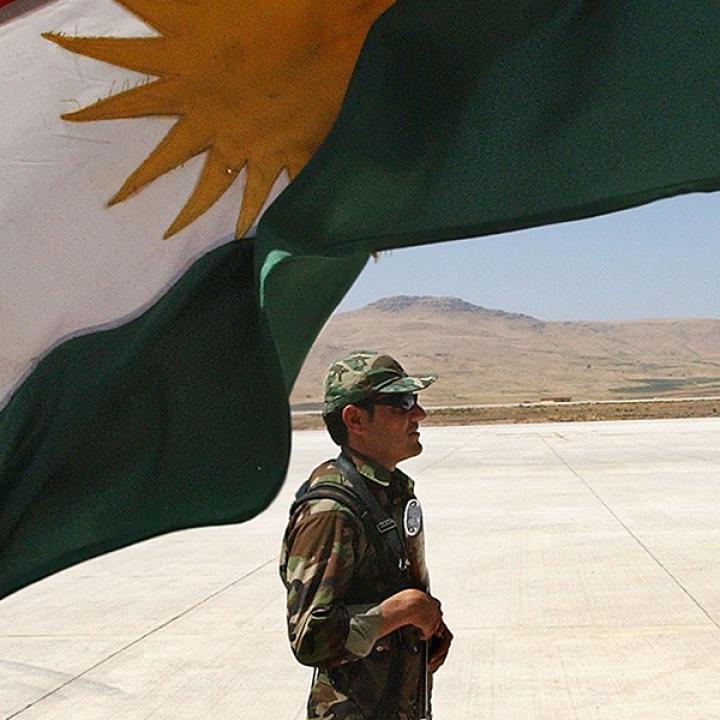
- Policy Analysis
- Articles & Op-Eds
The U.S. Must Extend Support to the Kurds to Beat Back ISIS

Full and timely U.S. military cooperation could help the Kurds and Baghdad split the would-be ISIS caliphate in half and spark tribal uprisings against the group.
On August 7, the New York Times held a roundtable debate on potential U.S. military involvement in Iraq. Read Dr. Knights's contribution below, or view the full discussion on the NYT website.
The attack by ISIS on core Kurdish interests and land is a potential game changer in the fight against the terrorist group. Or, perhaps, a U.S.-Kurdish military response to the ISIS attack would be the game changer.
I have argued before that the Kurds are the key to defeating ISIS. Why? The Kurds control the only intact forces in Iraq and have a history of confronting and defeating Salafi terrorist groups in northern Iraq. Plus, the north-south road from Baghdad to ISIS's capital in Mosul is 350 miles but Mosul is only 30 miles from the Kurdistan region. The battlefield geometry practically dictates that the Kurdish region is the ideal launchpad for a war against ISIS.
While the Kurds are on the ropes after a series of vicious thrusts by ISIS, they have the fighting spirit and the determination to hold the frontier of their region. With U.S. assistance they can help Iraq decisively roll back ISIS's position in northern Iraq.
The Kurdish peshmerga are 80 percent of the way there in terms of fighting spirit, equipment and skills. If full U.S. security cooperation -- the "special sauce" of U.S. air support, logistics and coordination with the Iraqi military -- were to be rapidly extended to the Kurds, they could break ISIS's momentum and deal them a public blow between Mosul and the Syrian border. This kind of defensive action would snap the would-be ISIS caliphate in half and spark tribal uprisings against them that might drive them out of the cities and into the deserts again.
The U.S. is vital to this outcome, and this might be ISIS's Pearl Harbor moment -- the point at which an overconfident opponent goads the U.S. military into action for the good of both American interests and the world at large.
Michael Knights is a Boston-based Lafer Fellow with The Washington Institute.
New York Times

